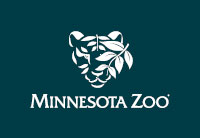Have you ever gazed up at the stars and felt a spine-tingling sensation? Or viewed the vast openness of the Grand Canyon and felt your breath taken away? If so, you may have experienced awe. “Awe” has been defined as “being in the presence of something vast or beyond human scale”. While the definition makes it sound like only major experiences generate awe, the reality is everyday experiences can create an experience of awe!
Why is awe important?? Researchers have discovered that awe binds us together and helps us to act in more collaborative ways. Awe can also help foster curiosity and lead us to see things in new ways. Albert Einstein described feelings of awe as “the source of all true art and science.” Awe is also linked to people acting more kindly towards each other and experiencing more happiness.
So how to go about fostering feelings of awe? Spending time in nature is a great place to start!
How to get started:
- Nature is full of opportunities to experience awe. Gazing at the stars, watching a butterfly emerging from a chrysalis, a bee visiting flowers, or just viewing the clouds moving in the sky- any moment in nature has the power to fill you with awe!
- Practice opening your senses. Pay close attention to any sounds, smells, and feelings. Closing your eyes is a great way to get in touch with your other senses. By being present, you are more likely to be open to experiencing awe.
- Slow down. Give yourself time (and permission) to pause and experience nature. Taking deep, calming breaths while you experience nature can further help you stay in the present moment.
- Don’t force it! Let yourself experience all emotions that may arise, even if awe or wonder isn’t one of them. Be open to the experience and try to not have too many set expectations of what you “want” to happen.
- Consider writing about your experience or sharing it with a friend or loved one!
There is an endless abundance of awe-inspiring natural experiences, so you can do this daily. The more we can experience these small moments of awe amidst our day-to-day experiences, the more creative and curious we will be. We will also experience benefits to our health and well-being!
The Minnesota Zoo would love to see examples of how you used this activity at home! Please share pictures or comments via email at [email protected], and take less than 5 minutes of time to provide us feedback by completing this short survey.




Get Social